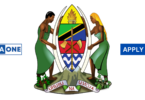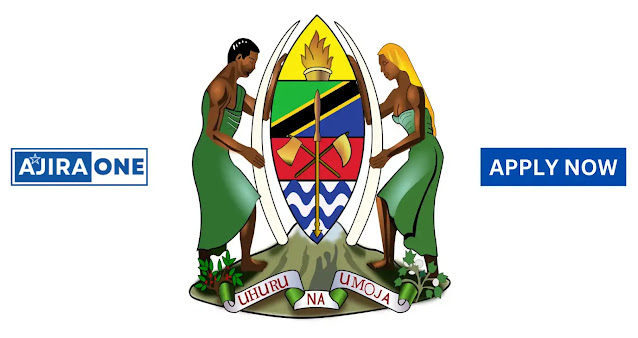Walking into a job interview can feel like stepping onto a stage without knowing your lines. But here’s the good news: with the right preparation, you can walk in feeling confident and ready to shine. Let’s walk through ten essential steps that will help you prepare for those tricky interview questions and make a lasting impression on your potential employer.
1. Know Your Story Inside and Out
The most common interview opener is still “Tell me about yourself,” and how you answer this question sets the tone for everything that follows. Think of your professional story as a compelling narrative, not just a list of jobs you’ve held. Start by really thinking about your career journey – what led you to choose your field, what experiences shaped your professional growth, and what brings you to this opportunity now.
Your story should feel natural, like you’re having a conversation with a friend, but it also needs to be focused and relevant to the position you’re seeking. Spend time practicing this story until you can tell it comfortably in about two to three minutes. Remember to highlight the experiences that directly relate to the job you’re interviewing for, but don’t be afraid to let your personality shine through. After all, companies hire people, not just skillsets.
2. Research the Company Like a Detective
Gone are the days when reading the company’s “About Us” page was enough. Today’s hiring managers expect candidates to have a deep understanding of their organization. Start with the company’s website, but don’t stop there. Look up recent news articles, press releases, and social media presence. Pay attention to their company culture, values, and any recent achievements or challenges they’ve faced.
What really impresses interviewers is when candidates can connect their research to thoughtful questions and insights. For example, if you notice the company recently launched a new product, you might prepare to discuss how your skills could contribute to similar initiatives. If they’ve won awards for their workplace culture, you could prepare examples of how you’ve contributed to positive work environments in your past roles.
3. Master the Common Questions
While every interview is different, certain questions appear so frequently that not preparing for them would be a missed opportunity. These typically include:
- Why are you interested in this position?
- What are your greatest strengths and weaknesses?
- Where do you see yourself in five years?
- Why should we hire you?
- Tell me about a challenge you faced at work and how you handled it.
The key to mastering these questions isn’t memorizing perfect answers – it’s understanding the intention behind each question and preparing thoughtful, honest responses that showcase your value. When discussing challenges or weaknesses, always include what you learned or how you’re working to improve. This shows self-awareness and a commitment to growth, qualities that employers value highly.
4. Prepare Your STAR Stories
The STAR method (Situation, Task, Action, Result) is your best friend when it comes to answering behavioral questions. Think of at least five work-related stories that showcase different skills and situations. These might include times when you showed leadership, resolved a conflict, overcame a challenge, or achieved something significant.
Write these stories down and practice telling them out loud. The key is to keep them concise while including enough detail to make them meaningful. Each story should be about two to three minutes long and should clearly demonstrate the impact of your actions. Remember, the best stories are specific and include real results or learning outcomes.
5. Connect Your Experience to the Job Requirements
Take the job description and break it down into its key requirements. For each major requirement, prepare specific examples from your experience that demonstrate your relevant skills. This isn’t about creating perfect matches – it’s about showing how your experience has prepared you for this role.
For instance, if the job requires project management skills but you’ve never held the title of project manager, think about times when you coordinated team efforts, managed deadlines, or organized resources. The goal is to help the interviewer see how your experience translates to their needs.
6. Prepare Thoughtful Questions
The questions you ask at the end of an interview can be just as important as the answers you give. Your questions should show that you’re genuinely interested in the role and have given serious thought to how you might fit into the organization. Avoid questions about basic information that’s readily available on their website or questions that focus solely on benefits and time off.
Instead, ask about the team’s current challenges, what success looks like in the role, or how the position might evolve over time. These types of questions show you’re thinking long-term and are interested in making a real contribution to the organization.
7. Practice Your Delivery
While you don’t want to sound rehearsed, practicing your delivery is crucial. Find a friend or family member who can conduct a mock interview, or record yourself answering questions. Pay attention to your pace, tone, and body language. Are you speaking clearly? Making appropriate eye contact? Showing enthusiasm?
Remember that nervousness is normal, but preparation helps manage it. Practice until you feel comfortable but not robotic. Your goal is to sound natural and confident while staying focused and professional.
8. Research Salary and Negotiation Points
While salary discussions often come later in the interview process, being prepared for these conversations is essential. Research typical salaries for similar positions in your area using websites like Glassdoor, LinkedIn, and industry-specific resources. Consider your experience level and the value you bring, and be prepared to discuss compensation professionally and confidently.
Remember that compensation isn’t just about salary. Think about what other aspects of the package are important to you, such as professional development opportunities, flexible working arrangements, or health benefits. Having this clarity helps you evaluate offers and negotiate effectively when the time comes.
9. Prepare Your Interview Kit
The day before your interview, prepare everything you’ll need. This includes multiple copies of your resume, a notepad and pen, any portfolio items or work samples, and directions to the interview location. If it’s a virtual interview, test your technology, ensure you have a professional background, and check your lighting and sound quality.
Also, plan your outfit and get it ready the night before. Choose something professional that makes you feel confident and is appropriate for the company’s culture. When you’re well-prepared logistically, you can focus your energy on the actual interview rather than worrying about these details.
10. Plan Your Follow-Up
Before the interview even happens, plan how you’ll follow up. Prepare a thank-you email template that you can customize based on your conversation. Make sure you have the correct spelling and titles of everyone you’ll be meeting with, and plan to send your follow-up within 24 hours of the interview.
In your follow-up, reference specific points from your conversation and reiterate your interest in the position. This is also an opportunity to briefly mention anything you forgot to say during the interview or to clarify any points you feel could use elaboration.
Remember, interview preparation isn’t just about having the right answers – it’s about being ready to engage in a meaningful conversation about your potential contribution to the organization. Take these steps seriously, but also remember to be yourself. The best interviews feel like professional conversations where both parties are exploring the possibility of working together.
Stay positive throughout your preparation process. Every interview, regardless of the outcome, is an opportunity to improve your interviewing skills and learn more about your industry. With thorough preparation and a positive attitude, you’ll be ready to make the most of your next interview opportunity.



